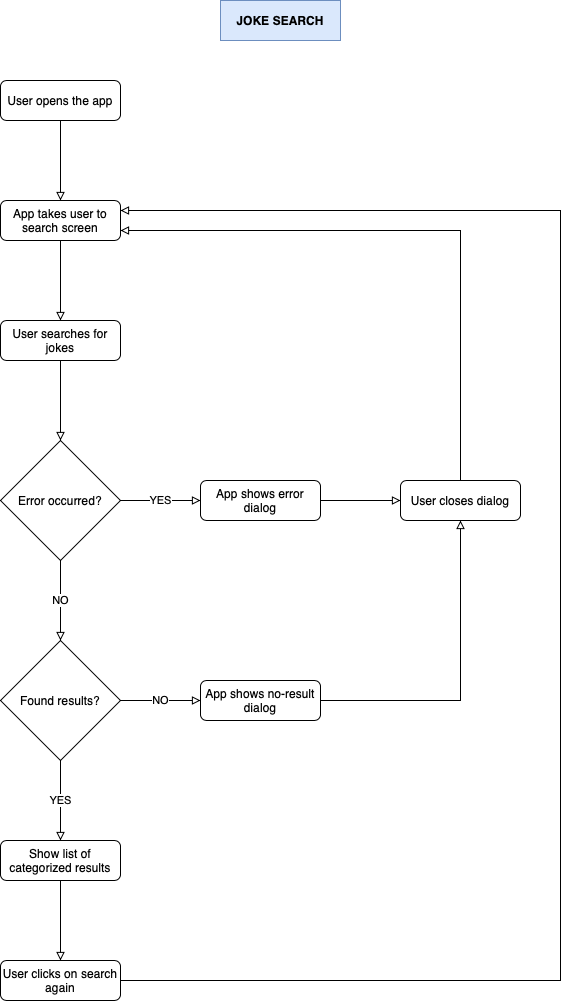Practical challenge completed as part of the recruiting process of Stone Pagamentos.
The app consists of a Chuck Norris' fact searcher that allows users to share facts with other apps.
On your computer: Download and install both JDK 1.8 and Android Studio:
- Android Studio - https://developer.android.com/studio/
- JDK 1.8 (JDK 8) - https://www.oracle.com/java/technologies/javase-jdk8-downloads.html
In case you prefer to an emulator to run the app, download an ADV following these steps:
On your smartphone:
- An Android device is enough.
On your computer:
- After installing the software mentioned above, open the project with Android Studio and run in either on your actual device or on an emulator.
On your smartphone:
- Download the apk provided by me and install it directly into your Android device. This only applies to e-mail contact.
-
GitHub Projects - automated KanBan board for task management;
-
GitHub Issues - project issue management;
-
GitHub Actions - CI pipeline;
-
Kotlin - modern programming language for native Android development;
-
Clean Architecture - software design principles that allow for SOLID layering of the app, making the app scalable, agile and robust;
-
Test-Driven Development - technique that allows abstractions to be readily tested, as a way to ensure robust feature development, allowing failures to happen as soon as possible, so they can be fixed before detailed implementation;
-
MockK - powerful unit test library for Kotlin, to ensure solid Test-Driven Development cycles;
-
MockWebServer - network test library for simulating API responses, to ensure solid Test-Driven Development cycles;
-
Retrofit 2 - HTTP client API that makes it easier to make REST API data requests;
-
RxKotlin - asynchronous and event-based reactive programming library;
-
Room Persistence - SQLite abstraction for data persistence in-app, for data fetch even if the app is offline;
-
Stateful MVVM - presentation design pattern that allows better UI state control, ensuring reactive UI events based on ViewModel data changes;
-
Dagger2 - dependency injection framework that ensures static compile-time dependency injection, allowing injection errors to be caught before users ever have a chance to do so;
-
ViewBinding - feature that ensures null-safety on calling views from a given layout;
-
Ktlint - linter to ensure Kotlin usage and codestyle consistency throughout the app;
-
GitFlow - branching model workflow that allows better control over the integration and delivery of production and development code;
-
Rebase - git feature that allows organizing a git history in such a way that a development story may be clearly told, over a confusing development history;
-
Karma commit pattern - semantic commit message pattern, to allow for understandable development history; and
-
Git hooks - commit and pre-push git hooks to ensure that the code obeys linter, commit patterns and test rules, before integrating it to the codebase.
- Leehendry Pauletto
